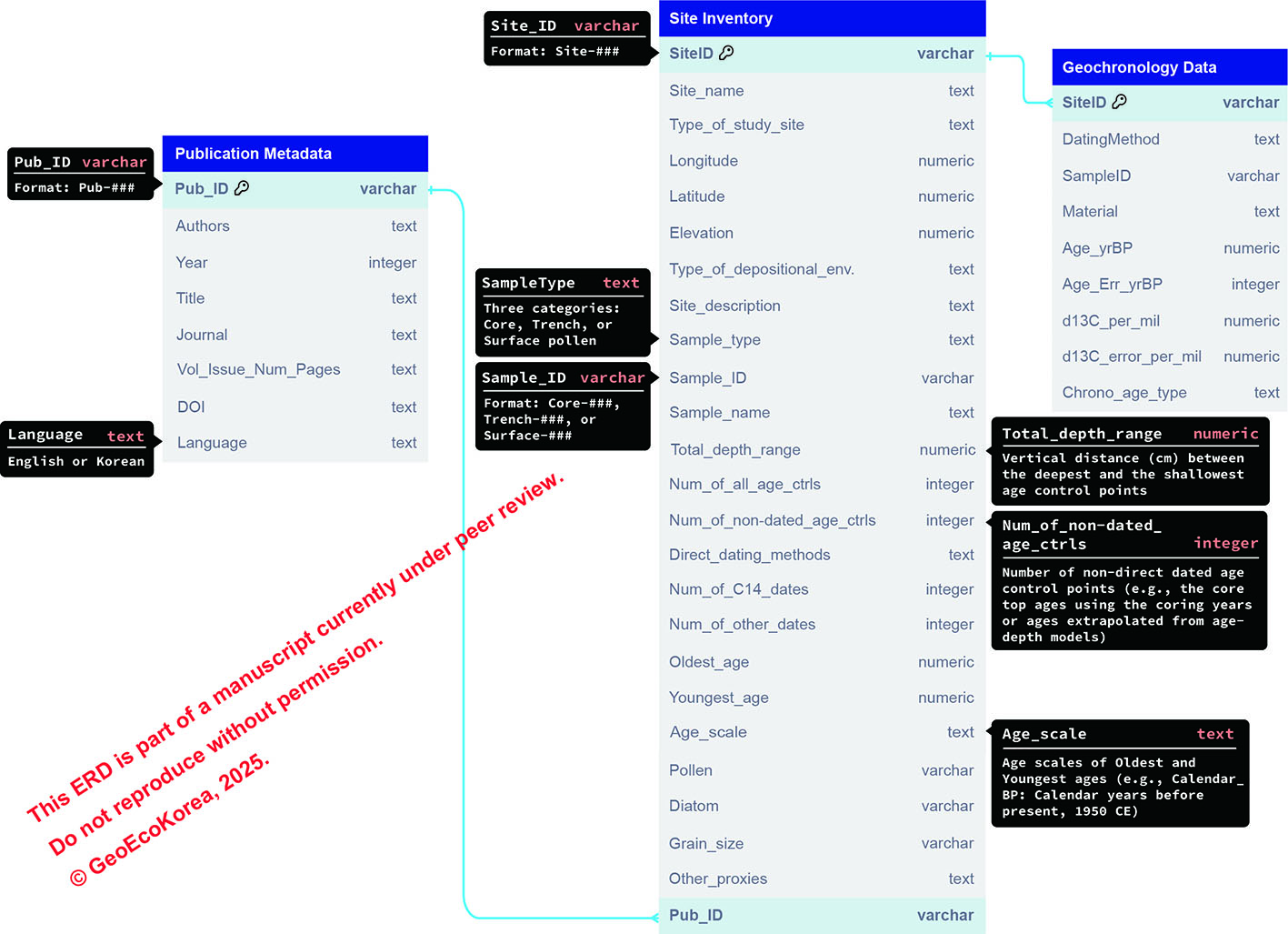GeoEcoKorea (GEK) curates and manages paleoecological datasets from South Korea using a site-based metadata framework. Our data are structured by study site and maintained using standardized metadata formats. Our site-based inventory serves as a foundational tool for organizing, linking, and mobilizing paleoecological datasets from South Korea, making them more visible and interoperable within international data-sharing frameworks. This page outlines our data source classification, inventory framework, and sharing policy.
GEK collects and organizes data from two publication types:
All datasets are managed through a site-based inventory system. Each site has a unique identifier and is linked to:
Entity–Relationship Diagram (ERD) of the GeoEcoKorea (GEK) database. The structure connects three main components—site inventory, geochronological data, and publication metadata—through a unique Site_ID. This schema represents an initial model and is expected to evolve into a more integrated structure that incorporates proxy datasets (e.g., pollen, geochemistry, diatoms) as data compilation progresses.

GEK upholds the principles of open science. Our data sharing policies are governed by the Creative Commons Attribution-NonCommercial 4.0 International license (CC-BY-NC 4.0).